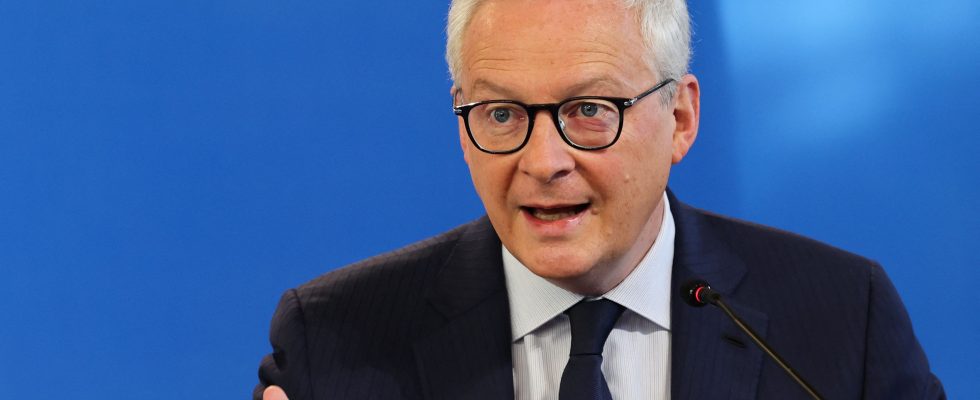France, still among the worst performers in the European Union in terms of public finances? Despite Bruno Le Maire’s promises to begin “deleveraging France” from the next fiscal year, the public deficit forecast for 2024 should remain at 4.4% of GDP. While this amount is down from the 4.9% deficit forecast for 2023, it is expected to remain one of the highest in Europe next year.
Bercy’s budgetary outlook is not unanimous. This Wednesday, September 27, the High Council of Public Finances considered itself less “optimistic” than the executive on the subject. This independent body attached to the Court of Auditors notably described as “high” the growth forecast of 1.4% for 2024, on which the government relies to construct its budget. Concerning the public accounts, he estimated that expenditure was likely to turn out to be “higher than expected, particularly with regard to the cost of energy devices and health expenditure”. While at the same time, revenue forecasts are also considered “a little overestimated”, driven upwards by high growth projections and the consequences they could have on the yield of certain taxes, such as VAT.
European budgetary rules in question
If the reduction in the French public deficit from 2024 is expected to continue in the years to come, France is still far from joining the ranks of its European neighbors. In 2026, according to forecasts from the European Commission, the French public deficit should still stand at 3.2% of GDP. By this date, only three other countries in the euro zone should also be above the 3% deficit: Estonia, Bulgaria and Slovakia. In comparison, Germany should have fallen below the 1% deficit mark. Several other states, such as Portugal, Greece, Cyprus and Ireland, should be in surplus or close to budgetary balance.
Above all, these figures continue to place France outside the objectives of the Eurozone Stability and Growth Pact, which sets a deficit threshold at 3% of GDP for the various member states. If these rules have been suspended since the Covid-19 crisis in the face of the need for significant recovery plans, they should come into force again from 2024. Bercy plans to return below this 3% deficit mark by 2027. But the renegotiation of European budgetary rules sees certain states, such as Germany, pleading for tougher regulations against those not respecting common objectives.
Enough to place Bercy face to face with an almost impossible equation. Because in parallel with the stated desire to reduce the public deficit and the debt, the government also assumes the need for major investment plans in several sectors, such as the energy transition, reindustrialization or education. Without forgetting the persistence of certain aid for the most modest in the face of inflation, such as the fuel allowance of 100 euros announced by Emmanuel Macron this Sunday, September 24.
